On a Friday morning, two hours before the lunch rush, customers are packed inside Ming Kee, a Cantonese-style barbecue restaurant.
The standing-room-only restaurant on Ingleside’s Ocean Avenue has regulars who line up to place and pick up orders. On most days, the queue stretches out the door and onto the sidewalk. On holidays, such as the Mid-Autumn Festival, the line stretches to the corner at Miramar Avenue.
“I come here two or three times a week,” said Andy Zhong, a customer waiting in line, speaking in Cantonese.
Zhong, who has been frequenting the restaurant for about three years, even before moving to the neighborhood last year, said he tries to visit during off hours.
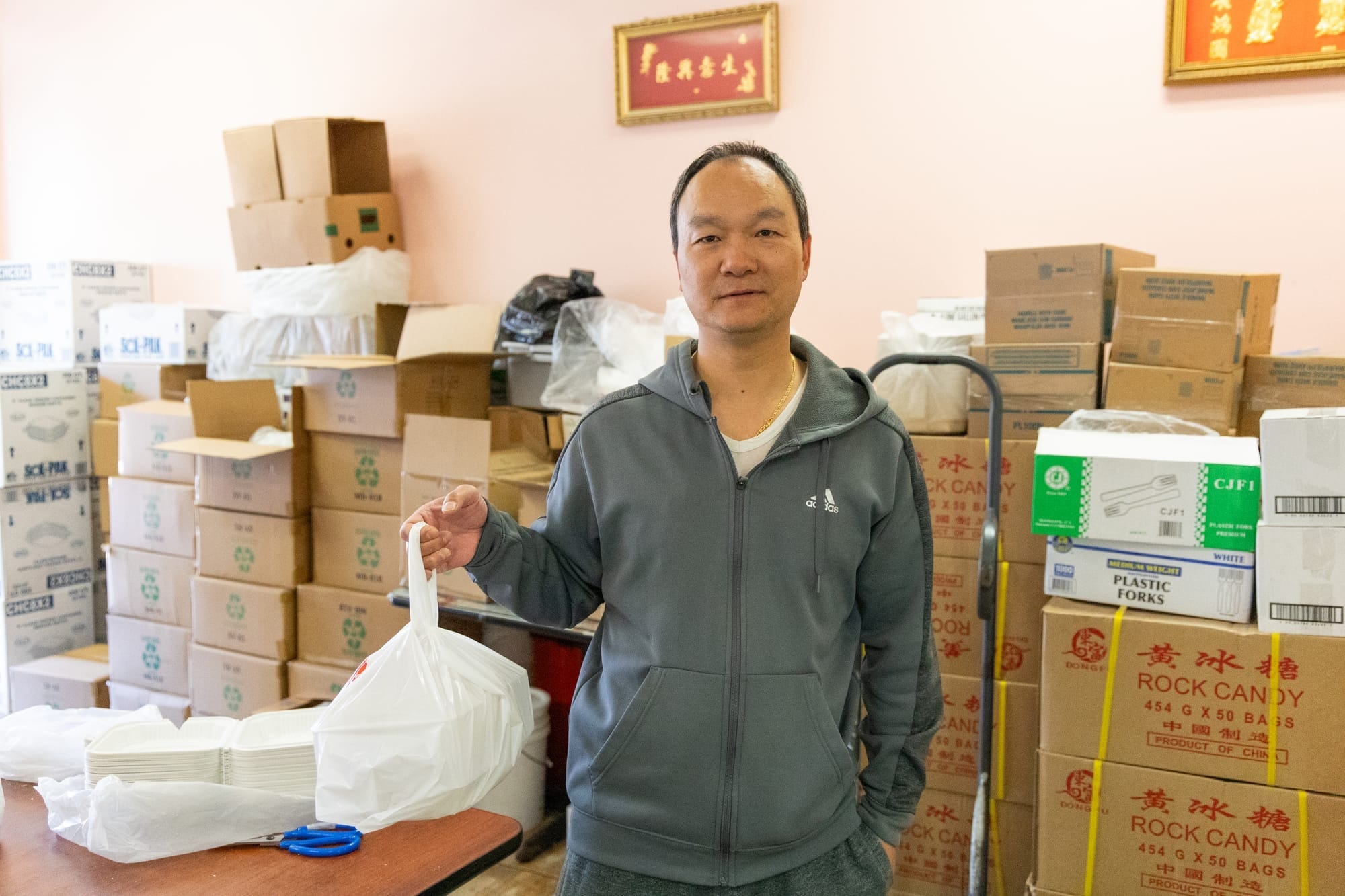

“There are a lot more people waiting in line around noon,” Zhong said.
Head chef and co-owner Da Ming Chen stood in front of the cutting board behind the glass display counter, his usual spot where customers can easily see him. The 62-year-old sliced soy sauce chicken, roast duck and char siu, the classic barbecue pork dish, with the speed and precision that only comes from 27 years of experience.
Ming Kee is one of the few remaining old-school Cantonese-style barbecue shops in the city, along with Lam Hoa Thuan and Cheung Hing Restaurant in the Sunset. For years, it has stood as the only Cantonese barbecue spot in the southern part of San Francisco, drawing a loyal following not just from the neighborhood, but also from customers across the city and the South Bay.
Ming Kee uses authentic techniques and small batch marinades while keeping prices affordable. The cost of preserving traditional methods has been high.
First, the pandemic forced the removal of indoor dining. Then tariffs imposed by the Trump administration caused costs for some ingredients to double. Yet Chen and his press-shy business partner have managed to keep things more or less the same. That means even eschewing delivery platforms that could bring them more revenue but force customer service to decline.
“We haven’t changed our recipe in decades,” Chen said.
In 1998, Chen, then 35 years old, took a risk and purchased a failing, three-year-old Cantonese barbecue restaurant on Ocean Avenue, a street that at that time had just one other Chinese eatery, Wang Wah. Although Chen had a decade of experience working in the kitchens of various Chinese restaurants, he had never operated a barbecue shop before. He began learning how to prepare Cantonese-style roasted meat from scratch and has been perfecting his craft since.
"They are well known for their chicken."
— Patricia Tien, Go Duck Yourself
Cantonese barbecue meats — roast duck, soy sauce chicken and char siu — are popular foods that those who maintain their Cantonese cultural roots often return to. These dishes are also popular choices during special celebrations. Yet, due to the complex preparation process, many customers prefer to buy them from shops rather than make them at home. Thus, shops like Ming Kee are a crucial part of the cultural fixture in a city where Asian Americans make up a third of the population and Chinese Americans represent the largest subgroup.
Patricia Tien is in the Cantonese barbecue business. She married into the family that operated Hing Lung Company, a classic Chinatown barbecue joint, and co-founded Go Duck Yourself, a modern Cantonese barbecue restaurant in Bernal Heights.
“They are well known for their chicken,” Tien said, adding that her family has known Ming Kee’s owners for years. While most Cantonese barbecue spots are known for their roast duck, Ming Kee is also famous for its soy sauce chicken, thanks in part due to a San Francisco Chronicle feature in 2007 on the dish that boosted the shop’s reputation and drew a surge of English-speaking customers.
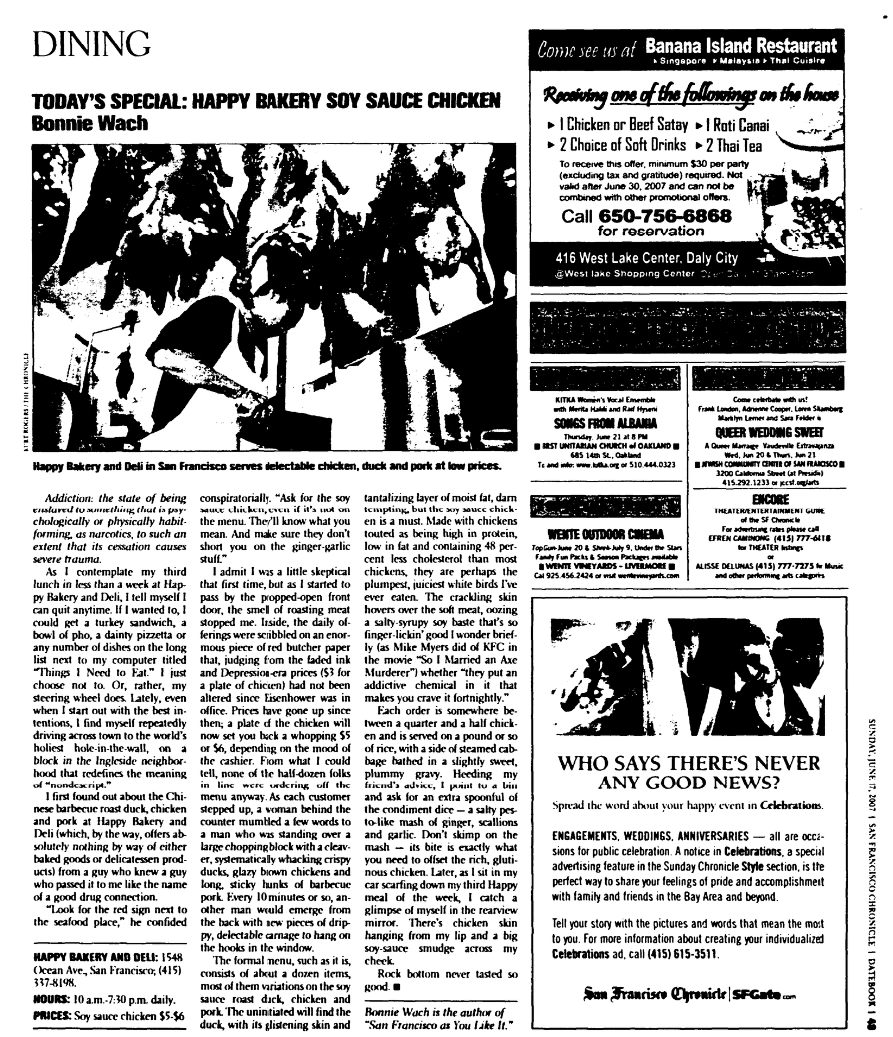
Still, running a Cantonese barbecue shop is far from easy in the already difficult restaurant industry. The process of preparing these traditionally cooked meats is both complex and time-consuming.
“It requires a lot of hard labor,” Tien said, adding that the cooking techniques rely heavily on manual skill, mostly preserved by older chefs. Fewer and fewer younger chefs are willing to take on the hard work.
Tien said that with fewer members of the younger generation taking over, this specific style of barbecue shop has been “slowly fading,” not just in San Francisco, but around the world.
The slow disappearance isn’t lost on Chen. He’s seen many Cantonese barbecue shops shut down, including the one in Irving Street that Ming Kee temporarily occupied when its location was damaged in a fire in 2012.
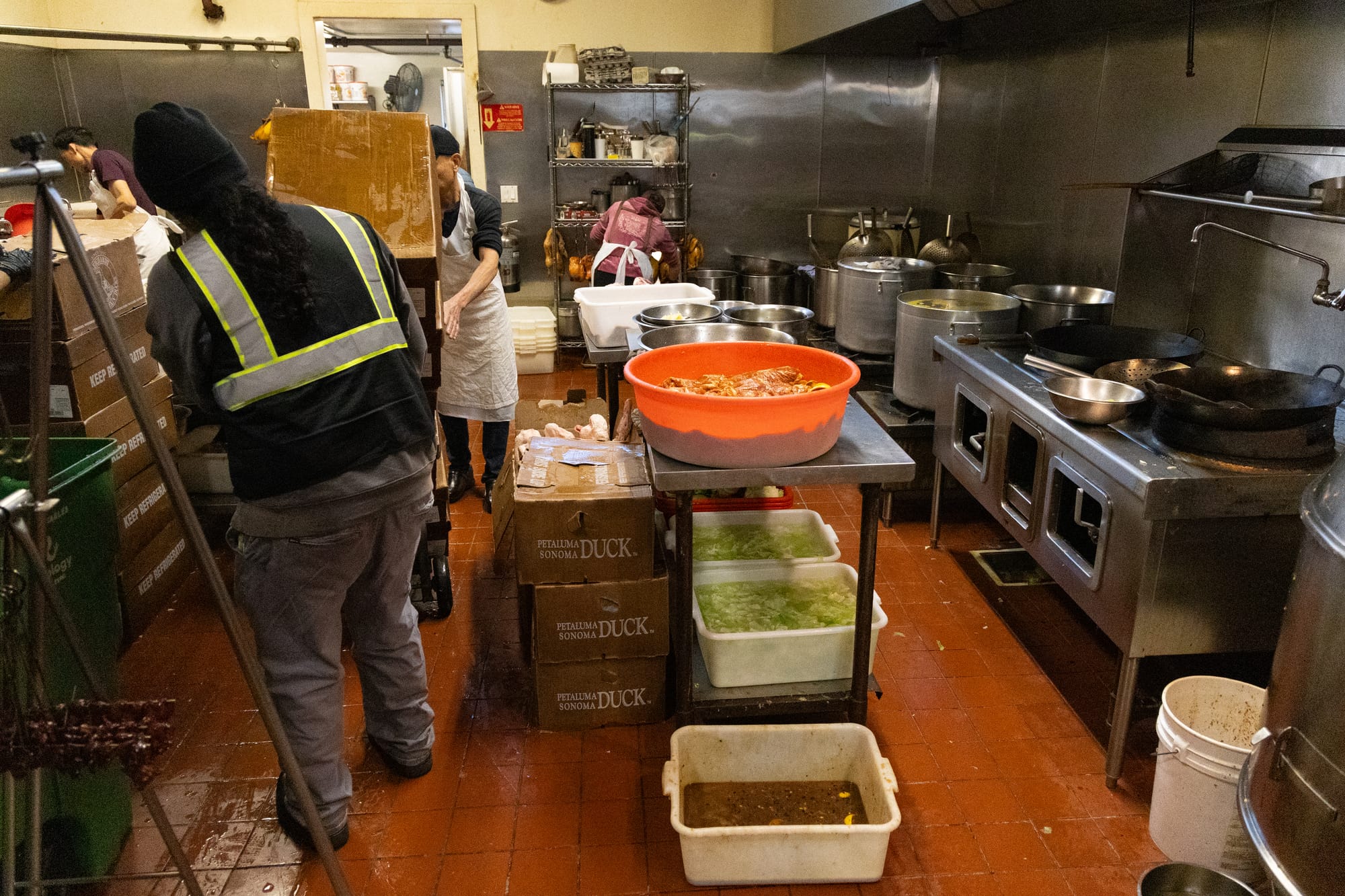
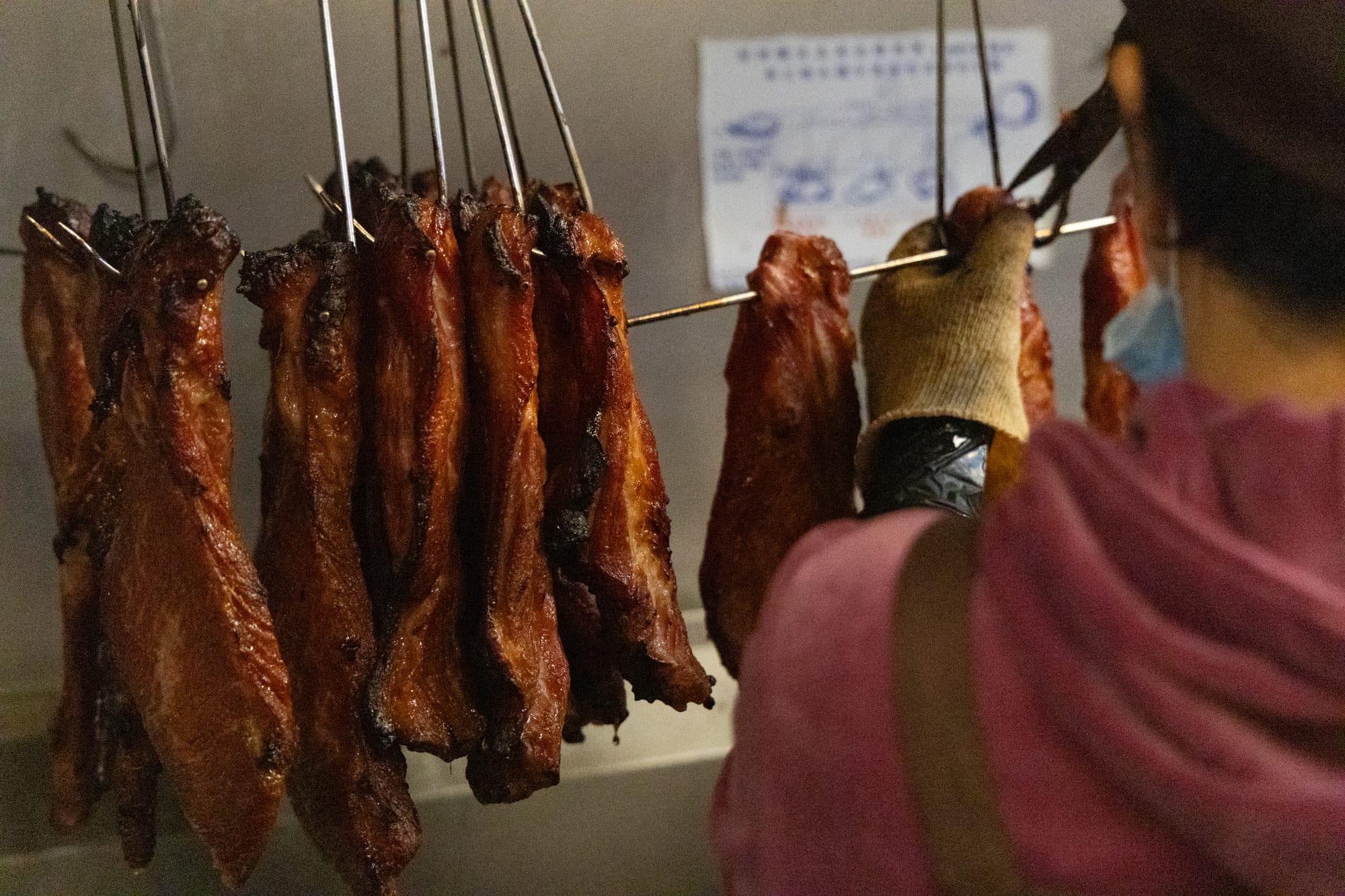
“It’s hard to operate and maintain a Cantonese barbecue shop, especially now,” Chen said, rattling off all it takes to stay authentic.
The key to authentic Cantonese barbecue, Chen said, is using the right ingredients and preparing them properly. The shop’s signature roast duck, for example, requires a meticulous process that includes making marinades with imported ingredients, marinating, hanging, blow-drying, roasting and, finally, chopping the duck into the proper size before handing it to the customer. If any step goes wrong, too little sauce or not marinating the meat long enough, the flavor won’t turn out right.
Despite the intense process to produce the authentic dish, there’s also intense pressure to keep prices low.
“Since the tariffs increased, we had to raise prices by a few percentage points,” Chen said. “After all, the cost of sugar, oil and soy sauce has doubled.”
Chen strives to keep prices reasonable, noting that most of their customers are working-class people who need a filling meal without breaking the bank. Many of their large orders come from construction crews.
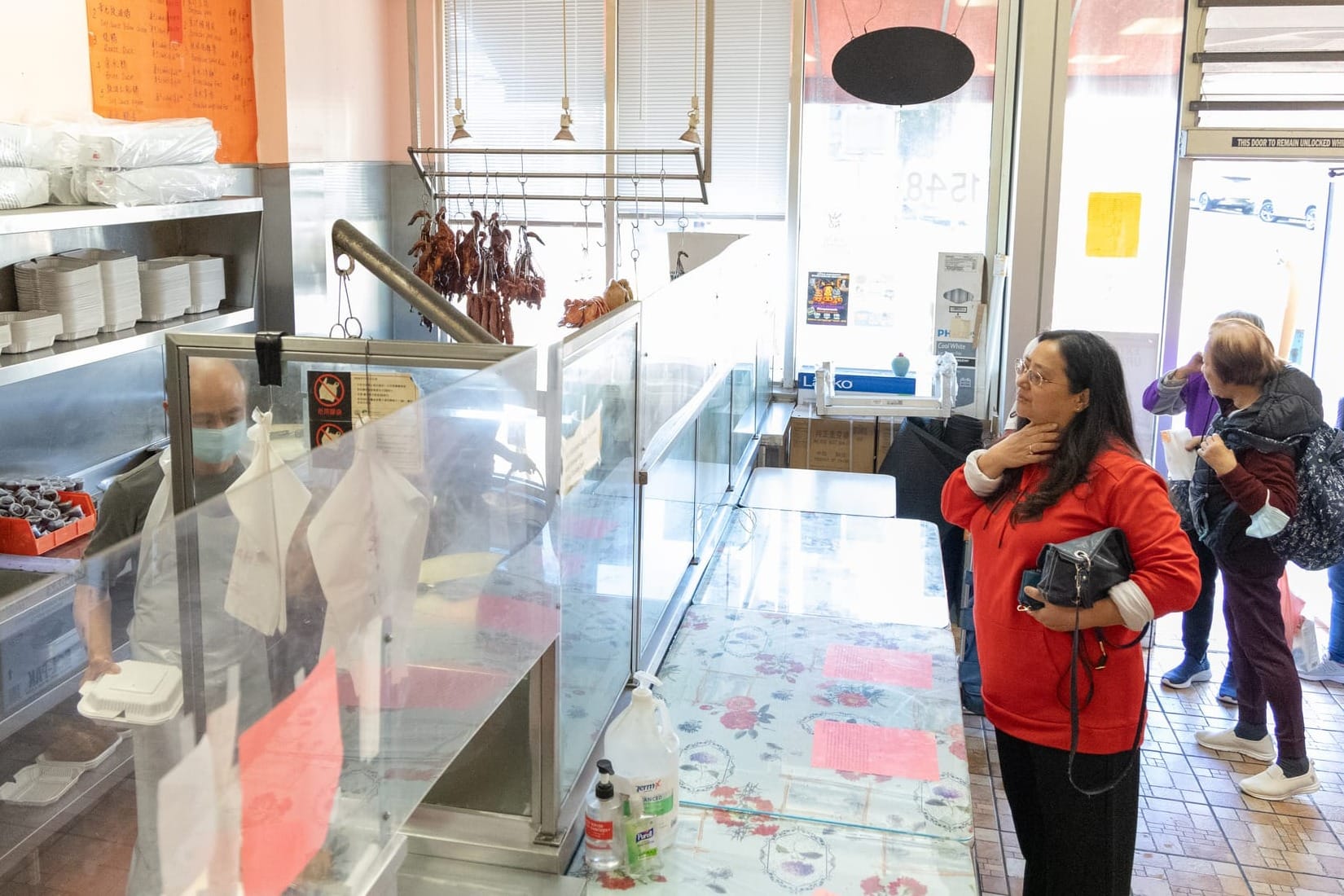
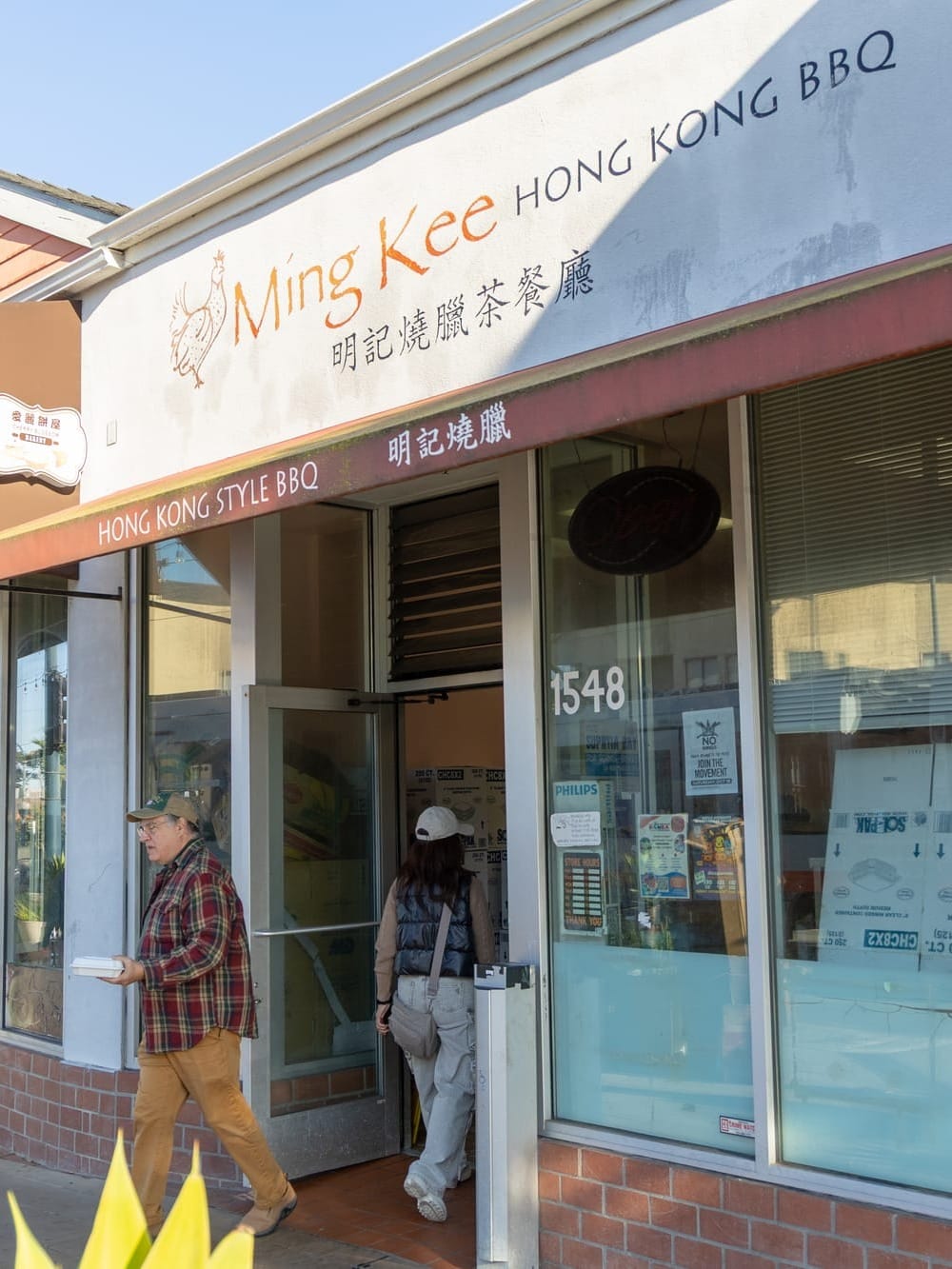
Ming Kee has avoided adopting delivery platforms like Uber Eats or DoorDash, unlike many newer restaurants. Chen explained that they are already working at full capacity to properly serve the loyal customers who keep coming back for the flavors they miss. He and his partner worried that expanding or scaling up could compromise the quality and taste.
“Compared with other Cantonese barbecue shops of this size, we already hire more people,” Chen said. Every day, about a dozen workers ensure every step of the barbecue-making process is followed thoroughly, while also keeping the space clean, which can be challenging, especially during busy hours.
Chen said, with a laugh, that he is “one step into retirement.” Still, he has no plans to slow down. “I haven’t thought much about what’s next,” he said with a smile. “But I plan to keep the shop running for a few more years.”







